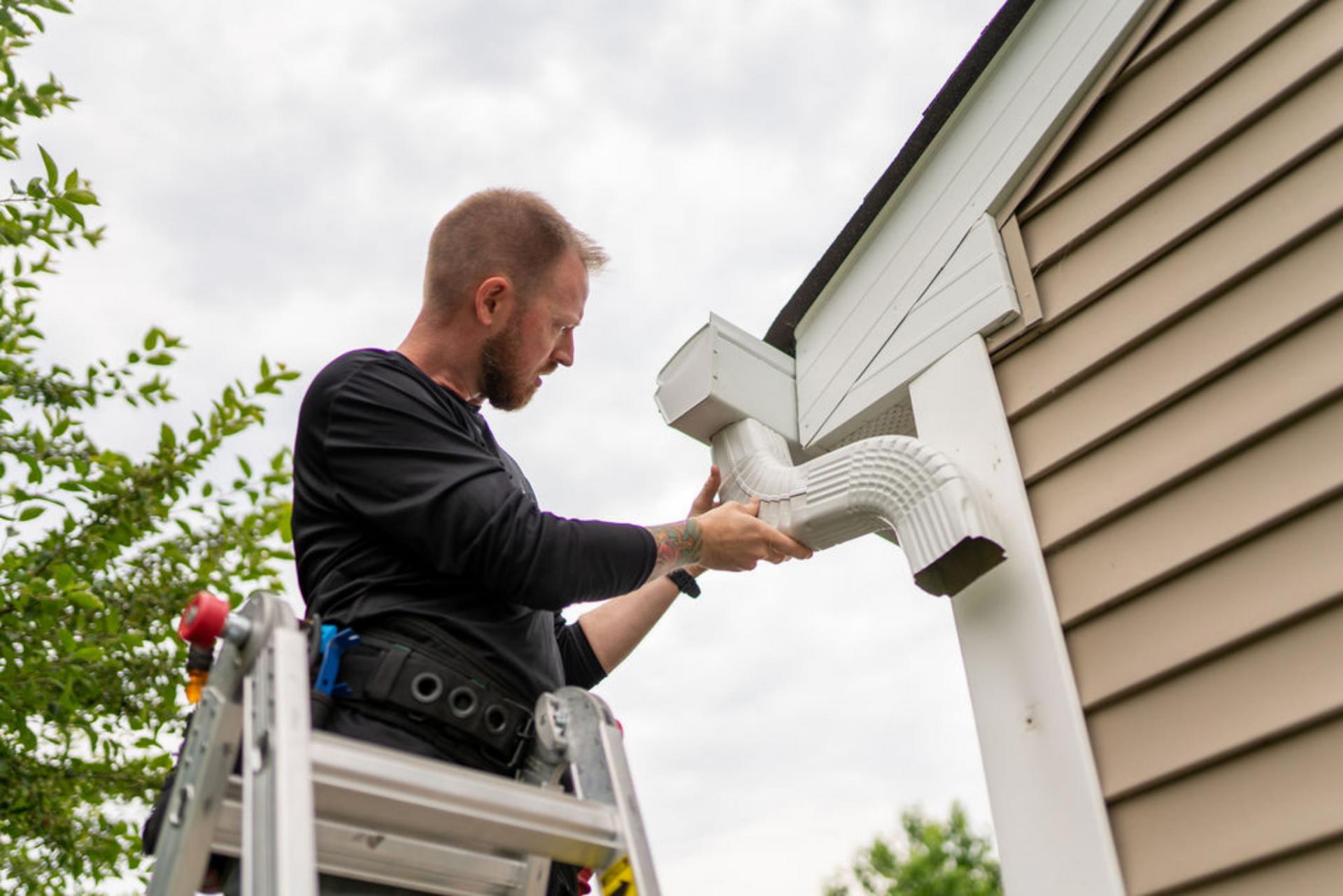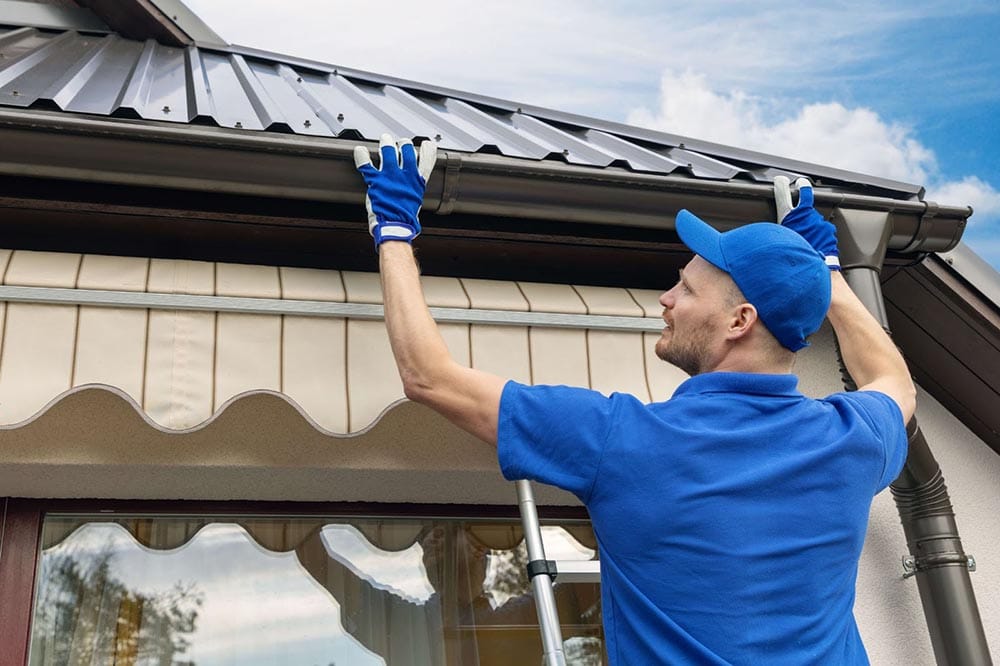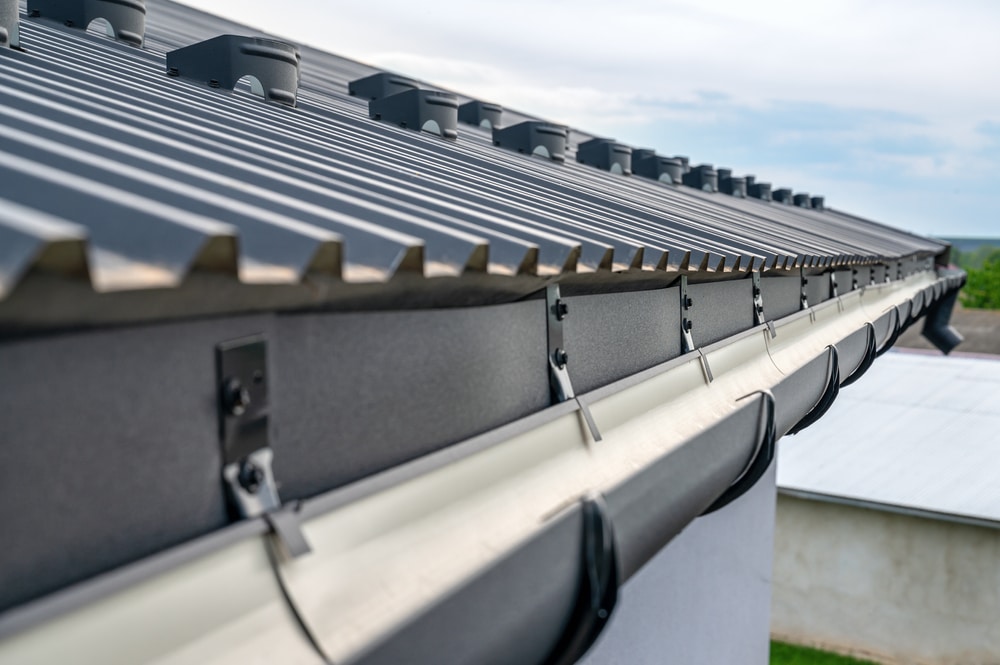Gutters are a vital component of any home’s drainage system, but not all gutters are created equal. The material you choose for your gutter system can significantly impact its durability, maintenance requirements, and overall performance. With so many options available, from aluminum to vinyl to copper, selecting the right material can feel overwhelming. This comprehensive guide breaks down the most popular gutter materials, their pros and cons, and how to choose the best one for your home.
1. Aluminum Gutters
Aluminum is the most widely used material for gutters, and for good reason. Lightweight, corrosion-resistant, and affordable, aluminum gutters are a versatile choice for most homes.
- Pros:
- Resistant to rust and weathering, making them ideal for coastal or humid climates.
- Available in a variety of colors to match your home’s exterior.
- Seamless aluminum gutters reduce the risk of leaks and require less maintenance.
- Relatively affordable compared to other materials.
- Cons:
- Can dent or bend under heavy impact, such as from falling branches.
- May require repainting over time if the finish fades.
- Best For: Homeowners seeking a cost-effective, low-maintenance option with good durability.
2. Copper Gutters
Copper gutters are a premium choice, prized for their stunning appearance and exceptional longevity. Over time, copper develops a natural patina that adds character to any home.
- Pros:
- Extremely durable, often lasting 50 years or more with proper care.
- Resistant to corrosion and mold growth, making them ideal for wet climates.
- Adds a high-end, elegant look to historic or luxury homes.
- Cons:
- Significantly more expensive than other materials, both in terms of material and installation costs.
- Requires professional installation to ensure proper performance.
- Patina may not suit every homeowner’s aesthetic preferences.
- Best For: Homeowners willing to invest in a long-lasting, visually striking gutter system.
3. Vinyl Gutters
Vinyl gutters are a budget-friendly option, often chosen by DIY enthusiasts or those looking to minimize upfront costs. Made from PVC, vinyl gutters are lightweight and easy to install.
- Pros:
- Highly affordable, making them a popular choice for smaller budgets.
- Resistant to rust and corrosion, ideal for humid or salty environments.
- Easy to handle and install, even for DIY projects.
- Cons:
- Less durable than metal options, prone to cracking or warping in extreme temperatures.
- Limited color options compared to aluminum or steel.
- Shorter lifespan, typically lasting 10–20 years.
- Best For: Budget-conscious homeowners or those in mild climates with minimal temperature fluctuations.
4. Steel Gutters
Steel gutters, available in galvanized or stainless varieties, are known for their strength and durability. They’re a great choice for homes in areas with heavy snowfall or frequent storms.
- Pros:
- Extremely strong, capable of withstanding harsh weather conditions.
- Galvanized steel resists rust when properly coated.
- Stainless steel offers superior corrosion resistance for coastal areas.
- Cons:
- Galvanized steel can rust over time if the coating wears off.
- Heavier than aluminum, requiring more robust mounting systems.
- Higher cost than aluminum or vinyl.
- Best For: Homes in regions with extreme weather or heavy debris.
5. Zinc Gutters
Zinc gutters are a lesser-known but highly durable option, similar to copper in terms of longevity and appearance. Like copper, zinc develops a patina over time, giving it a unique weathered look.
- Pros:
- Long lifespan, often exceeding 50 years with minimal maintenance.
- Naturally resistant to corrosion and environmentally friendly.
- Low maintenance once the patina forms.
- Cons:
- High upfront cost, comparable to copper.
- Limited availability compared to aluminum or vinyl.
- Patina development may take several years, depending on climate.
- Best For: Eco-conscious homeowners or those seeking a durable, low-maintenance premium option.
Factors to Consider When Choosing a Gutter Material
Selecting the right gutter material depends on several factors:
- Climate: If you live in a rainy or coastal area, prioritize corrosion-resistant materials like aluminum, copper, or stainless steel. In colder climates with heavy snow, steel or copper may be better suited to handle the weight.
- Budget: Vinyl and aluminum are the most affordable options, while copper and zinc come with a higher price tag. Consider both upfront costs and long-term maintenance expenses.
- Aesthetic Preferences: Gutters should complement your home’s exterior. Copper and zinc offer a distinctive look, while aluminum and vinyl provide more neutral options.
- Maintenance Tolerance: If you prefer low-maintenance gutters, seamless aluminum or copper with gutter guards may be ideal. Vinyl and galvanized steel may require more frequent upkeep.
- Home Value: Premium materials like copper or zinc can increase your home’s resale value, especially for historic or high-end properties.
Conclusion
Choosing the right gutter material is a balance of functionality, aesthetics, and budget. By understanding the strengths and limitations of each option, homeowners can make an informed decision that protects their property for years to come. Consulting with a professional gutter installer is the best way to ensure your system is tailored to your home’s specific needs. With the right material and expert installation, your gutters will provide reliable performance and peace of mind, no matter the weather.


